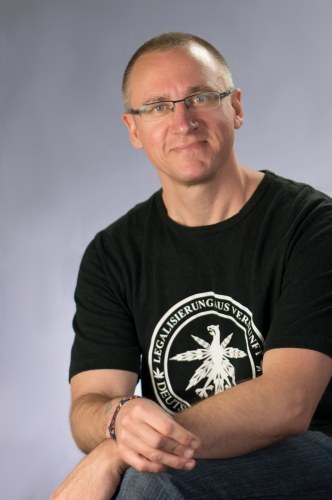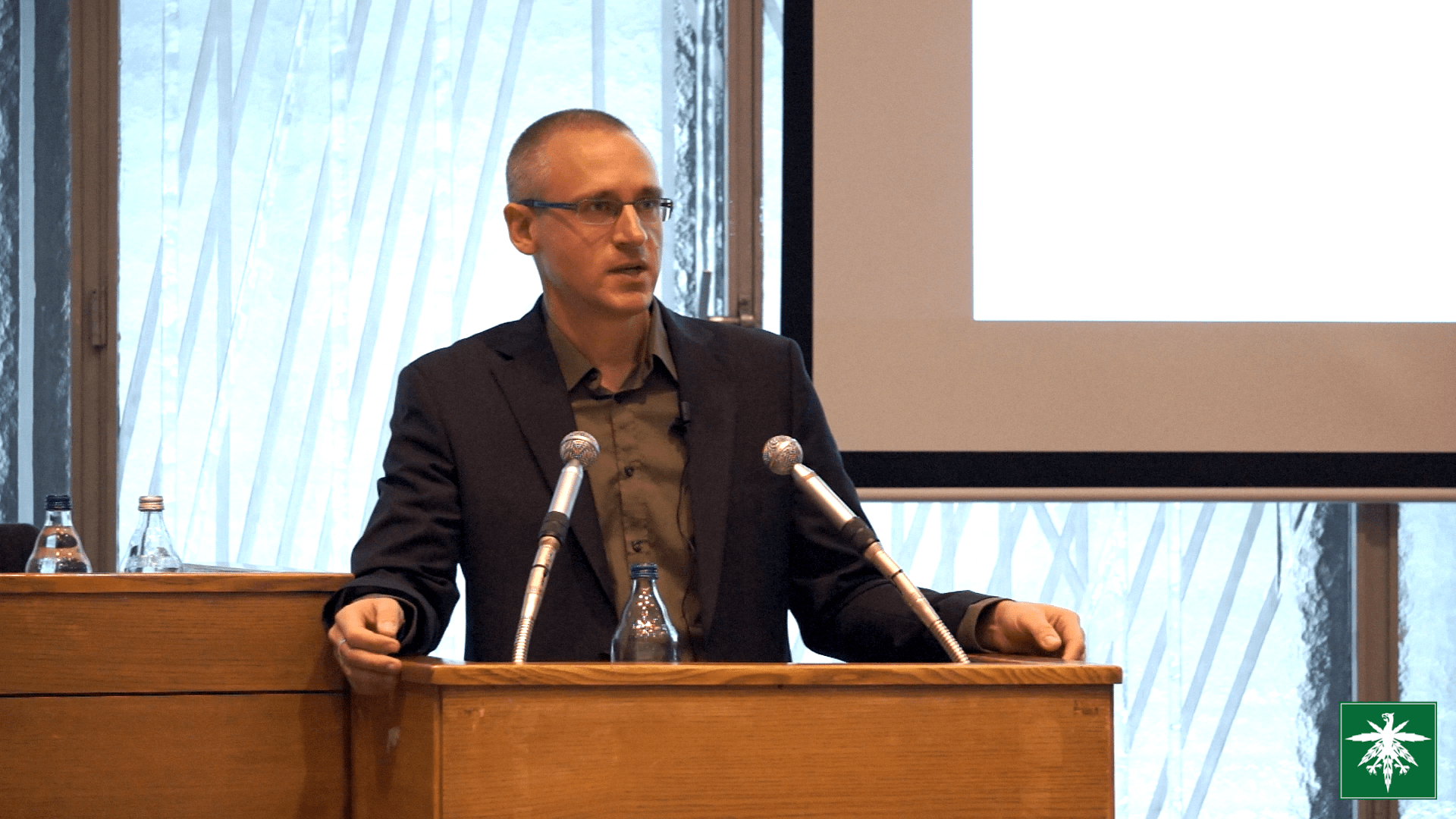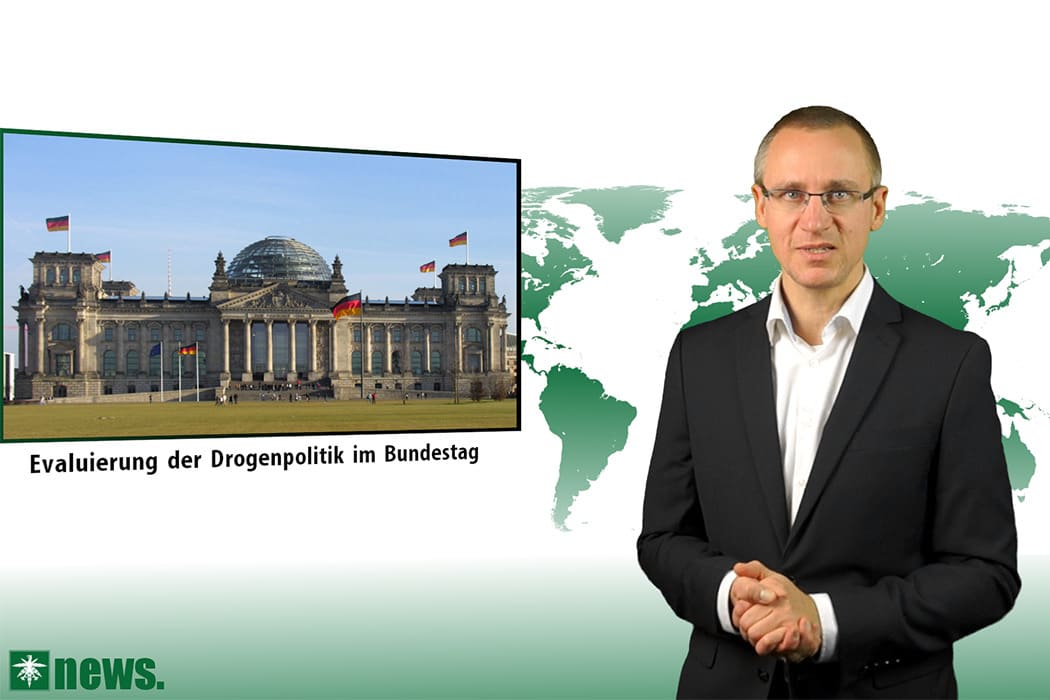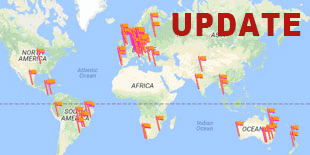Georg Wurth has been heading the German Hanfverband (DHV), located in Berlin since 2002. Born 1972 in Remscheid he is a studied economist and owner of the DHV since 2004.
The head of the German Hanfverband on hemp medicine, legalization and lobbying

In the past Georg Wurth has become a nationally known figure not only as author of a book (with Steffen Geyer: Rauschzeichen, KiWi-publishing house), but also as participant and winner of the broadcaster Pro 7‘s ‚Millionärsshow‘. We talked to the professional hemp activist about his work and the legalization of cannabis.
What‘s the current Status quo with regard to cannabis? What can patients count on primarily in the near future?
I am certain that we will achieve legalization, that at some point in the future everybody will be permitted to grow his own hemp, but that is still all in the future. Yet, cannabis as medicine will become a real option next year. From 2017 onwards it will become much more easier for many affected people to gain access to cannabis medicine, though it will be less simple to convince health insurance to pay for it. Despite this we have really taken a large step forward, from an international perspective Germany will be in the lead in this sector, too
What exactly shall now change?
Today one has the opportunity to receive cannabis medicine through an exceptional permit from the national opium authority, with enormous administrative action ensuing. Starting next year cannabis medicine shall become available through prescription. Though we do not know for which patients health insurance will cover costs. The plan is to only compensate those people‘s weed from the pharmacy who are suffering from „severe illness“. What exactly will pass for this is not clear yet. Probably, in the end, the medical service will influence the health insurance‘s decision.
What is your biggest point of critique with regard to the planned amendment?
That with this law amendment the individual growing, by patients, will be prevented. We think that this is one of the best possibilities to produce our own medicine well and at a low price. Another possibility would be the principle of care givers, which means a third party, who grows hemp for the cannabis patient – which translates into the Cannabis Social Clubs model.
Government rather prefers state-produced medical cannabis?
Precisely. A national cannabis agency is inherent part of the draft. Therefore there will be industrial cannabis growing in Germany.
But why then there will be still imported medical cannabis from Canada starting this month in Germany?
Because now there is only cannabis herb from the pharmacist from the Netherlands and we see supply shortage again and again. Which means that many patients regularly have to forego their medicine. The Dutch government does not want to export so much cannabis bzw. the producer Bedrocan cannot cope with manufacturing large quantities. In order to have not so many patients going without their medication in Germany in the future, here comes the Canadian medical cannabis. Because even if the establishing of a German cannabis agency is planned, in the near future which shall see problems with delivering.
Why?
When cannabis will be available through prescription, at the latest, you won‘t have but 800 people with an exceptional permit, who may claim medical hemp as today, but a lot more. And then you will require larger quantities of medical cannabis.
Could it be that the promised new law only translates into still another delaying tactics?
I don‘t think so. Because as the situation is now it will become difficult to prohibit patients from growing their own. On the contrary. The decision of the national administrative court in Leipzig (see last Hemp Five edition) said, that the national opium authority must grant a patient the right to grow his own. In order to not to let this decision introduce daily usage the government will pass their law amendment.

What is the DHV doing to make the legalization of cannabis happen? You are not only working in a medical context.
One thing is publicity work. We want to effect a majority for general legalisation – also of cannabis for recreational use. We definitively do not have this majority today. The other thing is political lobbying. Which comprises tedious labour, we contribute as counsellors and advisers into parliament. Besides which we talk to many politicians directly, make campaigns and work on a specific range of themes, important for public discussion, for example the whole sector cannabis and drivers licenses. At the moment we are five full-time workers and several volunteers. Which does not suffice at all.
What can the general public do to forward legalization?
I can only repeat myself: Folks, butt in, legalization does not just come about by itself! The more people become active and work for a change within drug policy the more successful we can be and the faster we will achieve a complete legalization of hemp.
Interview by Markus Berger.
German Hanfverband Website











